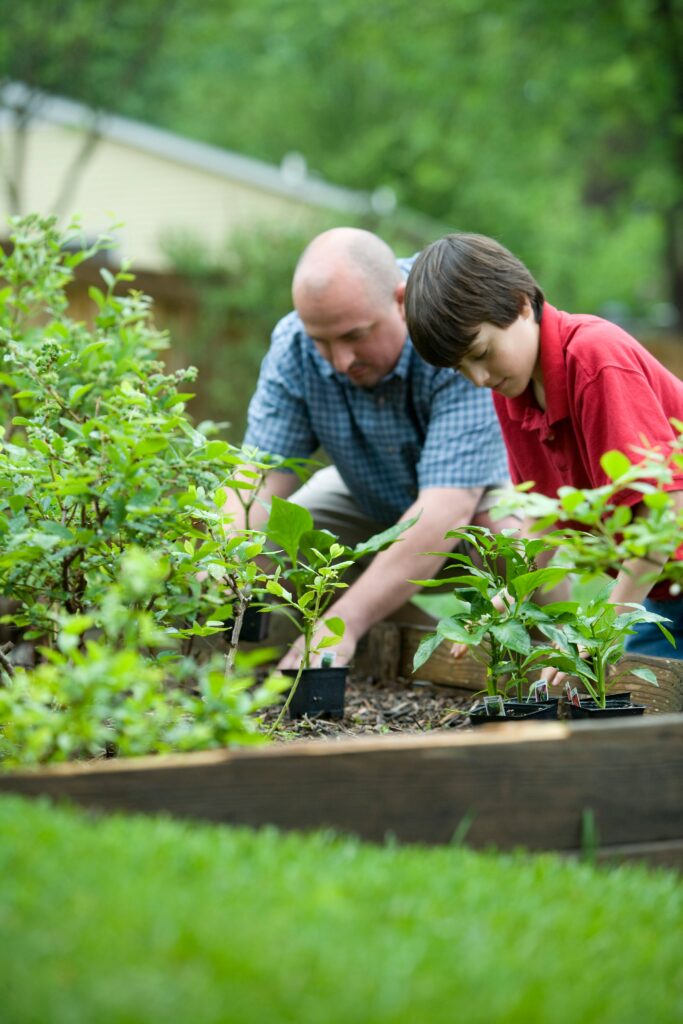Experts warn lockdown gardening could be affecting our eye and ear health

THE huge increase in popularity for gardening and home improvements throughout lockdown is set to wreak havoc on hay fever sufferers this summer warns Specsavers.
Keen gardeners planted 322 million more plants in 2020 than in the previous year[1], spending an average of three more hours per week in their gardens. Sales of hedge strimmers alone are up 115% as people start to spruce up their gardens for long-awaited social gatherings. However, for many people gardens can become a ‘no go zone’ during peak pollen season.
Hay fever, which is the common name for allergic rhinitis, is a widespread allergic condition affecting up to 20%[4] of the UK’s population. That is why this Allergy Awareness Week (April 26-30), Specsavers is sharing advice on how to treat the hay fever symptoms that are due to be provoked by the population’s newfound horticultural hobbies.
Specsavers clinical services director, Giles Edmonds, says: ‘As well as sneezing and a blocked or runny nose, hay fever can also cause red, itchy or watery eyes, which can be particularly problematic for contact lens wearers.
‘Those who wear contact lenses may notice the vision through their lenses can appear smeary and eyes can generally feel uncomfortable. While it can be tempting to rub your eyes to ease discomfort, it’s important to refrain. Try not to touch your face and ensure you maintain good hand hygiene, particularly while the pandemic continues.
‘However, there are some things contact lens wearers can try to help reduce the irritation. Contact lens-friendly eye drops can help to calm down any itchiness, while wearing prescription glasses – particularly wraparound sunglasses – can prevent pollen from getting into your eyes. Those suffering with hay fever could also try daily disposable lenses.’
But, it is not just eyes which are affected, as hay fever can also affect your ears.
Specsavers chief audiologist, Gordon Harrison, adds: ‘Allergic reactions can affect the lining of the middle ear via the Eustachian tube, which links the middle ear to the nose and throat. If this becomes blocked it can lead to a build-up in pressure, which can cause discomfort, popping in the ears, earache and impair your ability to hear.
‘To avoid irritation, try putting a balm like Vaseline around the nose to trap pollen, and vacuum and dust your home regularly, or you can try over-the-counter allergy relief. Staying inside when the pollen count is high will also help to avoid irritation and showering and changing your clothes when you get home will help to remove pollen from skin and hair.’
Gordon continues: ‘Luckily, for most instances of hay fever, the symptoms are easily treated. However, if symptoms persist and eyes or ears become uncomfortable, make sure to book an appointment with your optician or audiologist.’
Specsavers’ top tips to help hay fever sufferers
Put Vaseline around your nose to trap pollen.
Shower and change your clothes after being outside.
Stay inside and close windows when pollen counts are high.
Don’t rub your eyes or touch your face and make sure hands are kept clean.
Try eye drops to help ease itching.
Wear a face mask when outside to lower the rate of inhalation of pollen, spores and dust.




